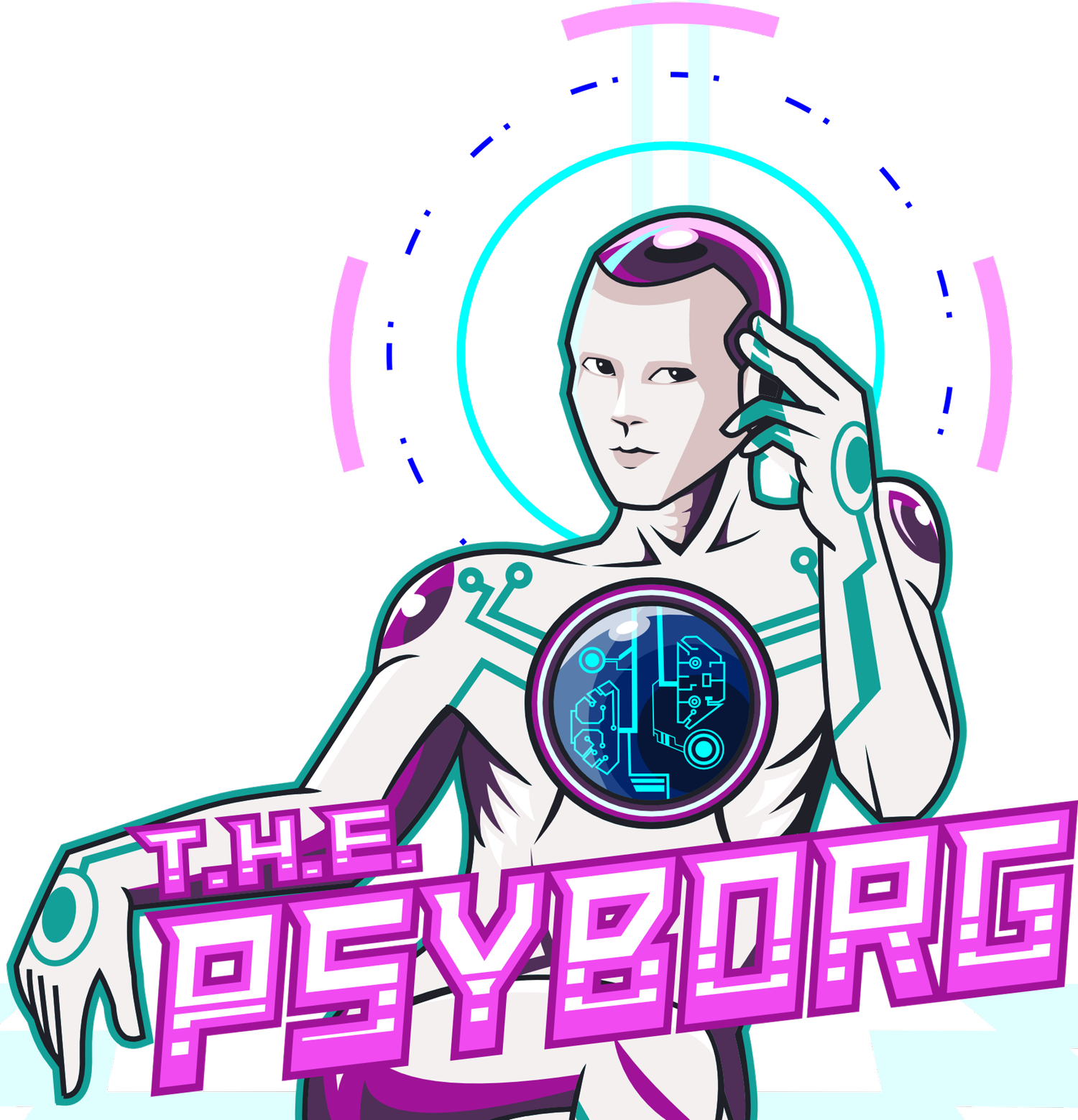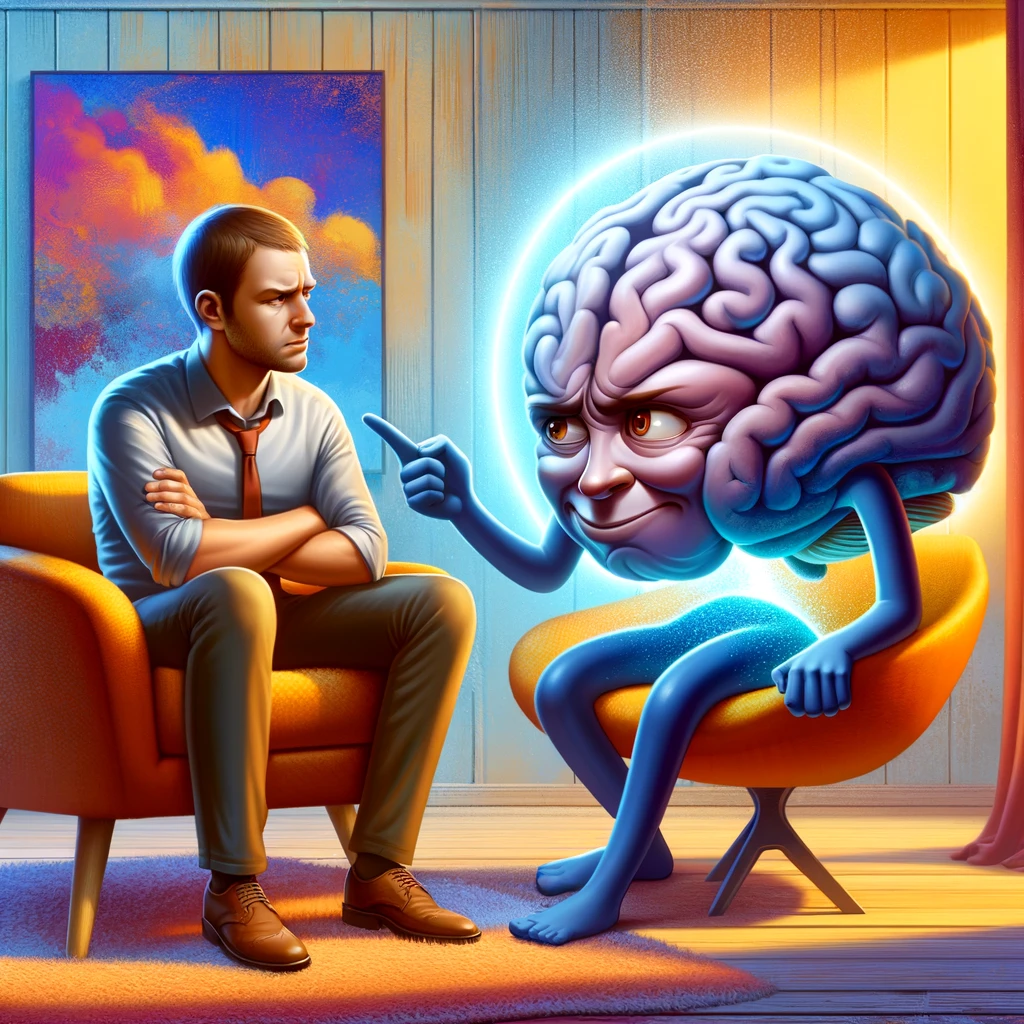Squirrel Gang, Rise Up! We’re gonna take control of ADHD
If you want to go from secret penitence to super power, you’re probably in the mood to take control of ADHD. Today, we’re going to look at what ADHD is and isn’t, then some of the baggage it brings, and finally start on the journey to master your mind.
Should you listen to me?
Before all that, let me tell you who I am. I am Jacob Mottram, the founder and director of T.H.E. Psyborg Pty Ltd (I’ll just call it “The Psyborg” most of the time). I thoroughly enjoy helping people reach their best (Thrive), recover from things that have gone wrong (Heal), and take things to the next level when they are ready (Evolve).
Like most therapists, I have had a whole mental health journey and a big part of that has been ADHD. I was lucky in that I got my diagnosis when I was a kid so I’ve always had confirmation that there was something a bit off centre about how I work. As I have grown and understood more over time, I have become quite adept at supporting other people in their journey.
Education wise, I have a Bachelor in Behavioural Studies (Psychology major), a Masters in Cognitive Behavioural Therapy, and Diplomas in both Business and Management.
Jacob Mottram
This is my face, in case you were wondering.
The definition of ADHD
I’m not here to formally diagnose anyone but if we are going to use the term ADHD, we should refer to the Diagnostic and Statistic Model of Mental Disorders, Fifth Edition (DSM-5) as that is where the framework lies. So, ADHD stands for Attention Deficit/Hyperactivity Disorder and comes in Hyperactive, Inattentive, and Combined types. Starting with the symptoms, we have:
Inattention: failing to give close attention to details, difficulty sustaining attention, not following through on instructions, difficulty organizing tasks, reluctance to engage in tasks requiring sustained mental effort, losing things necessary for tasks, easily distracted, forgetful in daily activities.
Hyperactivity/Impulsivity: fidgeting, leaving seat in situations when remaining seated is expected, running or climbing in inappropriate situations, inability to play quietly, often "on the go," talking excessively, blurting out answers, difficulty waiting turn, interrupting or intruding on others.
DSM-5
In case you were going to go google it instead of reading…
These are common examples, not the be-all and end-all. Seeing these symptoms, the DSM-5 then gives us a checklist:
1. Pattern of Inattention and/or Hyperactivity-Impulsivity
A pattern in this context means at least 6 months of expression of at least 6 symptoms of inattention and/or hyperactivity/impulsivity in a manner that is inconsistent with developmental level, and impacts negatively on social, academic, or occupational activities.
2. Age of Onset
Generally, they are looking for symptoms before the age of 12. For females, this can be different! There has been some more recent evidence that some females do not develop ADHD symptoms until puberty.
3. Settings
Symptoms have to be present in 2 or more settings, i.e. home, school, work, with friends/family, etc. Basically, if you act out at school because it is boring but never have the problems elsewhere it may be something else.
4. Impairment
As with point 1, if it is not a problem, it is not a problem. If your symptoms interfere with, or reduce the quality of, social, occupational, or academic functioning then there may be a problem.
5. Exclusion
If you only experience symptoms during psychotic episodes, or if another disorder better explains your symptoms, then it may not be ADHD.
Practical Presentation
The thing with the DSM-5 is it is easy to read and find a thousand problems with yourself. This is how we get the horrid phrase “we are all a little bit ADHD”. The impairment and exclusion items are the ones I look at most when I work with people and can generally summarise it as “do you ever have something that you love and enjoy doing but then one day your brain decides you don’t get to do it anymore?” and “does your brain switch on when everything is either going wrong or due now?”.
What is ADHD?
ADHD is classified as a neurodevelopmental disorder. This means it has something to do with the development of the nervous system. The info from the DSM-5 above is based on this, such as often seeing symptoms from a young age. This is also why management of ADHD often involves a combo of medication, therapy, and personalised support! It isn’t so simple as “thinking wrong” which is what leads us into…
What is not ADHD?
ADHD is not a dietary issue. This is not to completely dismiss the role of diet in managing ADHD, as SOME characteristics of ADHD can be managed through diet. A diet rich in nutrients is a great move for most people, and Omega-3 fatty acids have been linked to improved attention and thinking. If diet resolves everything, it would be worth investigating that side of things as there could be something else entirely going on. An example of this would be salicylate sensitivity can often lead to hyperactivity and learning difficulties but that is another conversation for another time.
ADHD is not a discipline issue. Some people can direct their mind and body as they choose. If this is utterly shocking to you - that is one of the leading reasons you may be called lazy. The “laziness” often comes from Executive Function Difficulty (planning, organizing, prioritising, and completing tasks) and physical and/or mental restlessness. The specifics go beyond the scope of this post but we’ll get there.
ADHD is not an attentiveness issue. Attentiveness refers to being thoughtful, considerate, or mindful of others. Due to mental restlessness, attention difficulties, or reduced working memory capacity, people with ADHD can sometimes appear to be self-centred or uncaring. Of the people I have spoken to, I don’t think that has ever been the case. I tend to see a lot of care but an inability to properly express (or remembering to express) this and the internal difficulties that come from this.
The Baggage
Feeling like you are failing all the time is hard. It is made even worse when everyone else seems to be able to do it just fine. This may look like anxiety, depression, obsessive thoughts, compulsive behaviours, or post-traumatic stress – just to highlight some of the experiences I work with every day. If you want to take control of your ADHD, often the first step is allowing yourself the space to learn your personal requirements. If you couldn’t run and finally looked down to see you only had one leg, you’d probably be able to understand and work towards learning to run and getting the support to make it happen. That is, essentially, what we are doing now.
What now?
The forms of management as stated above are medication, therapy, and personalised support.
If you require formal diagnosis, you’ll need to see a psychologist (cannot provide medication) or a psychiatrist (can provide medication). This is also the pathway to the most effective forms of medication, which are restricted from general prescription.
Should you want to work on the basis of ADHD without diagnosis, or if you are looking for personalised support and/or psychotherapy/counselling, I am more than happy to assist. You can book straight into my calendar using this link, or you can flick me an email using this form.
Take care for now, and I hope to speak to you soon.






